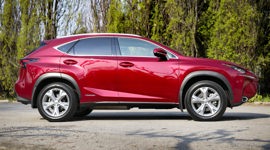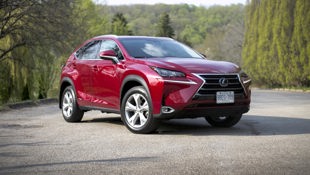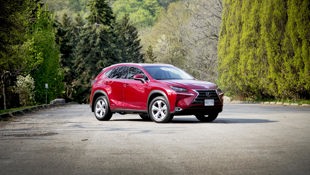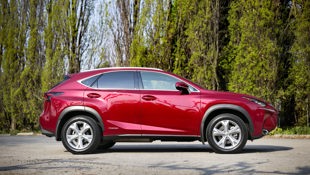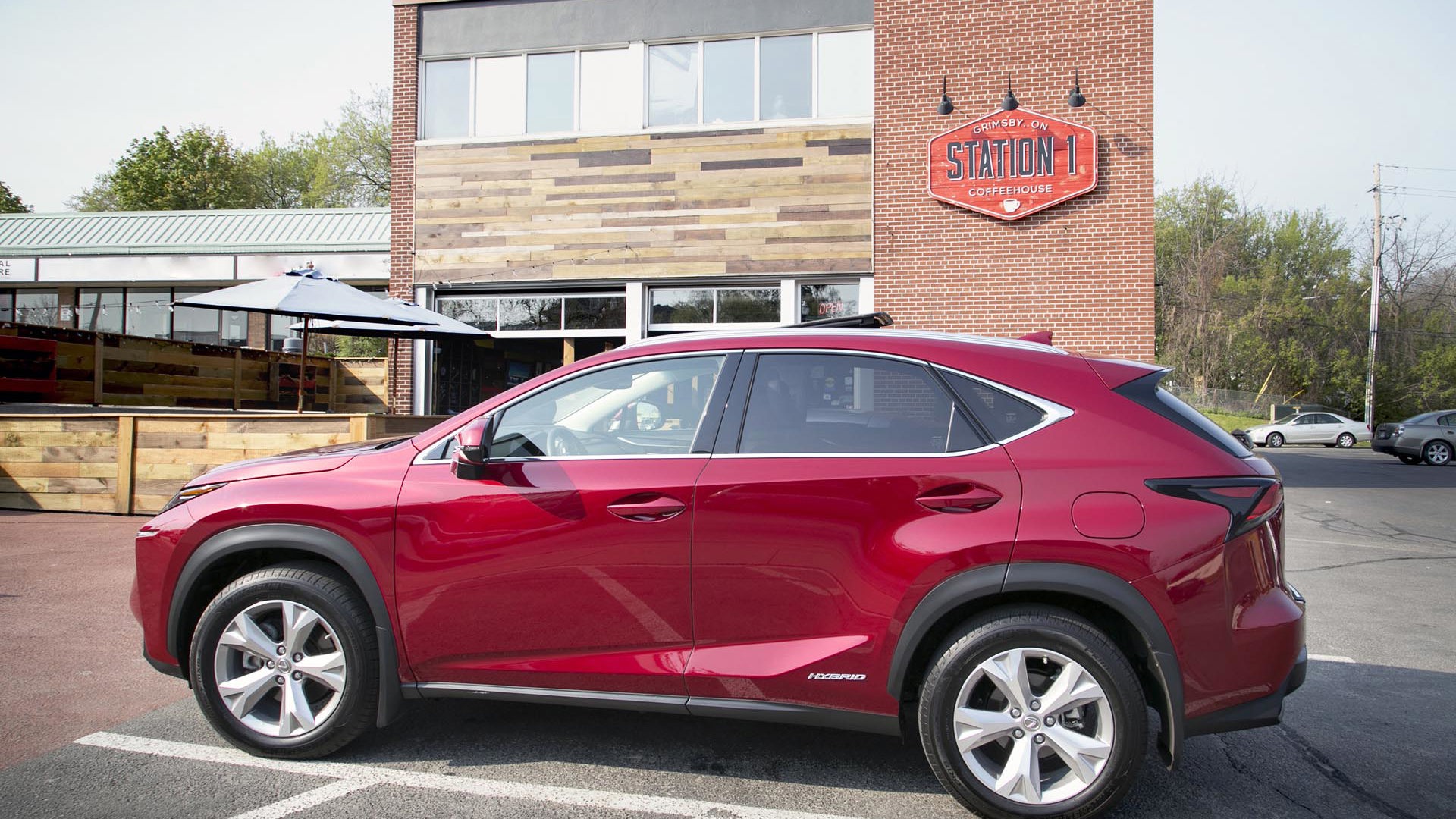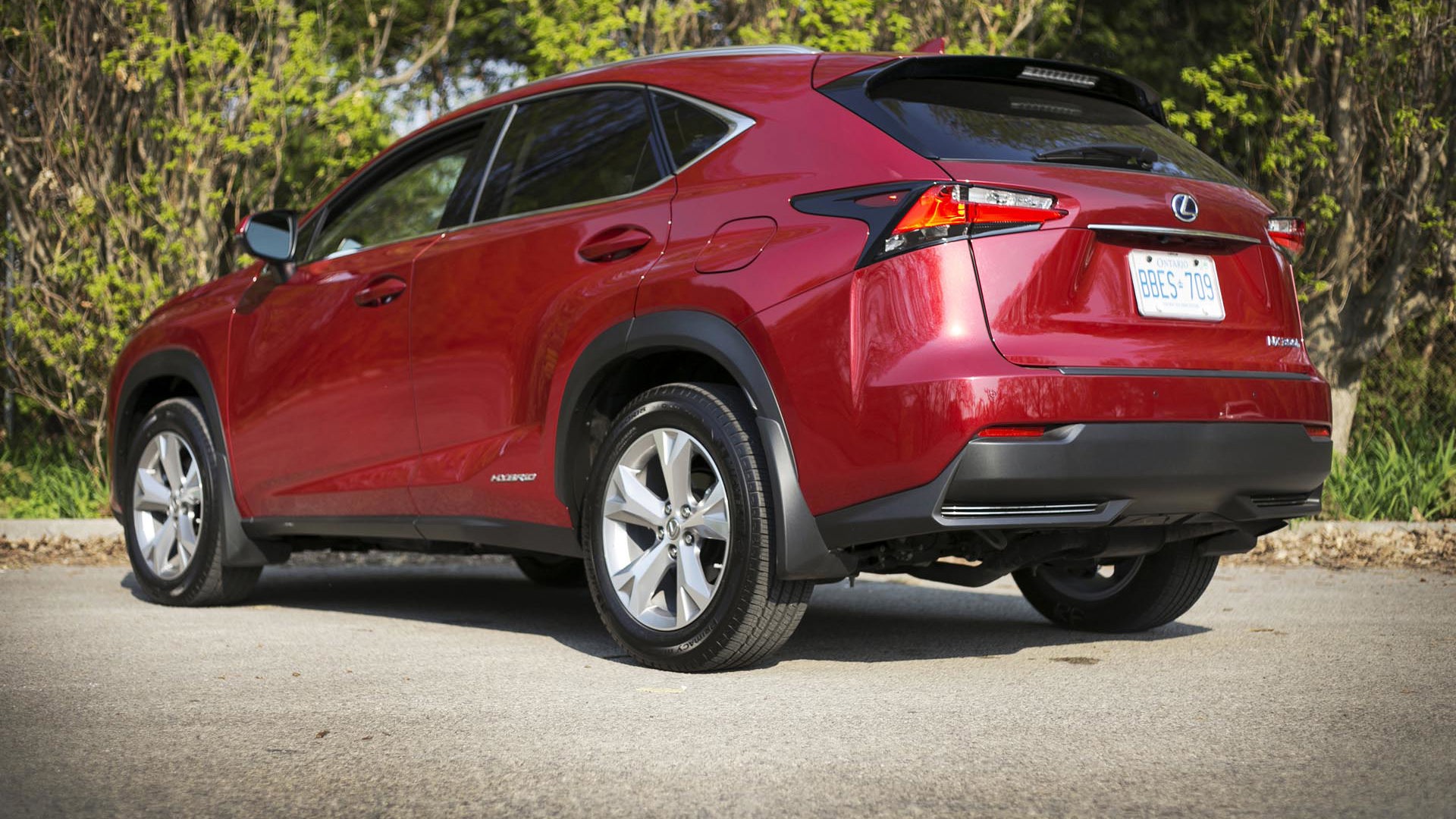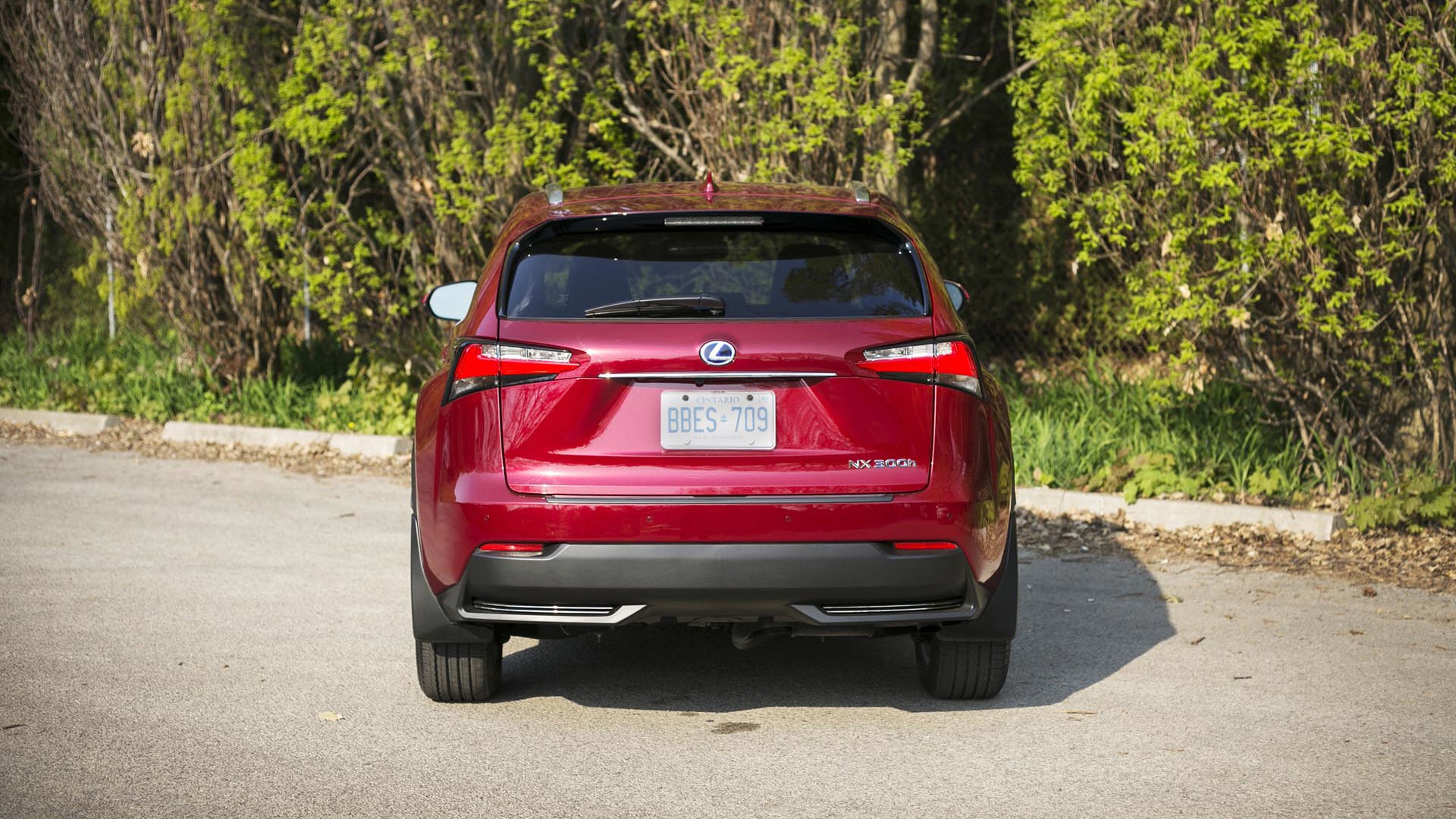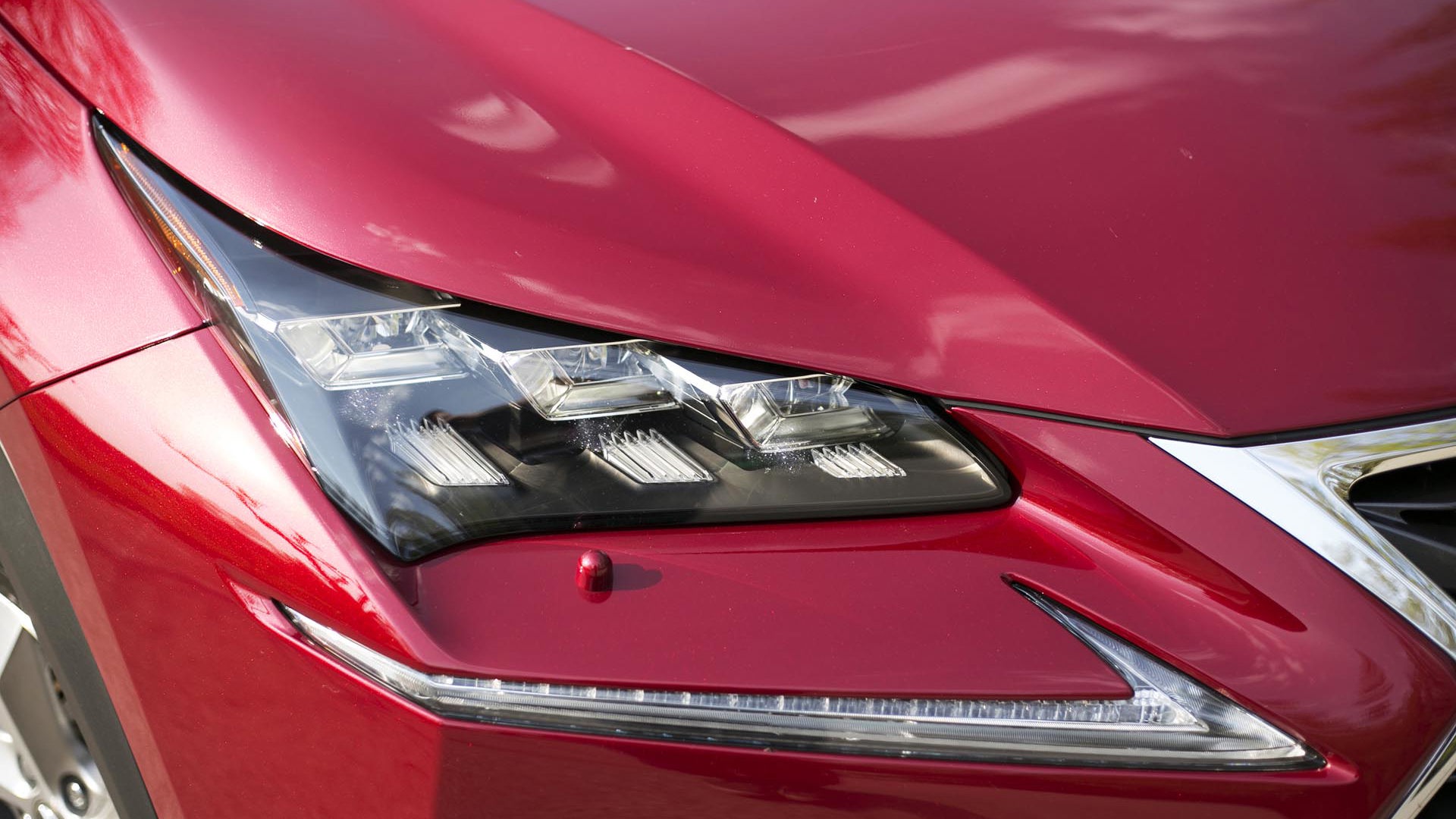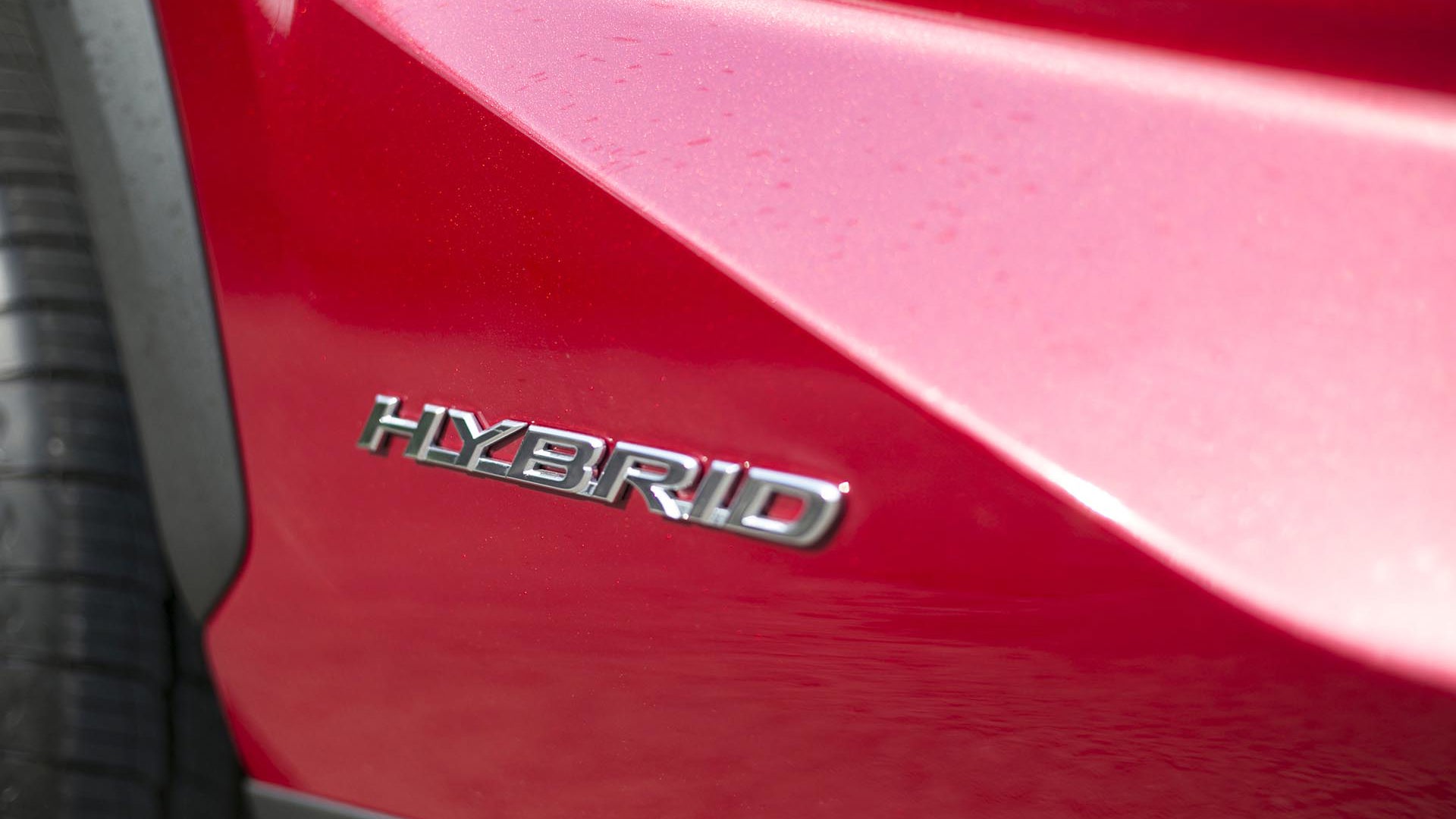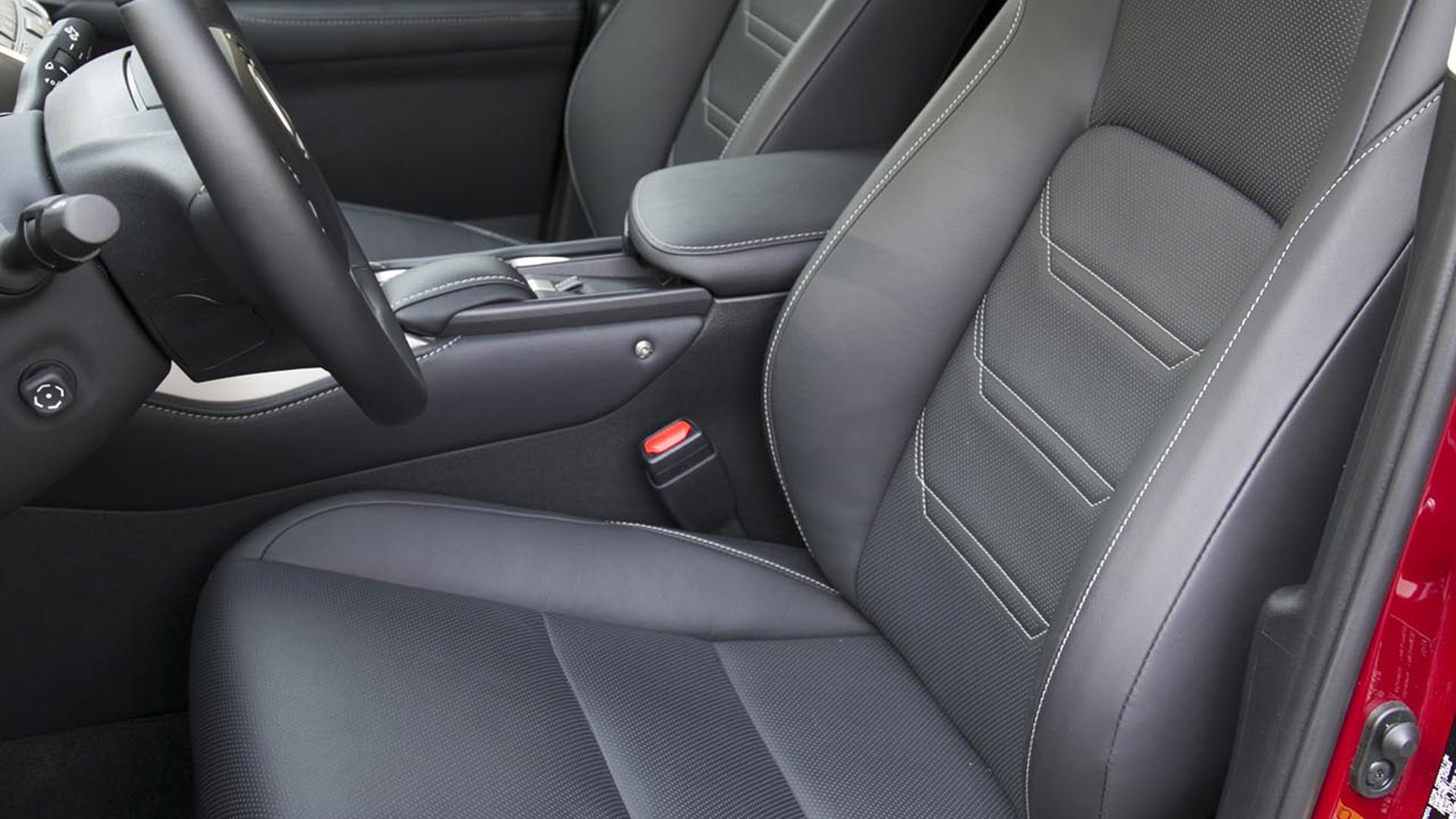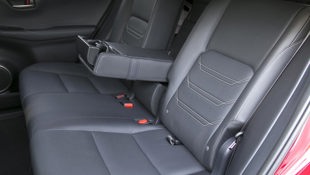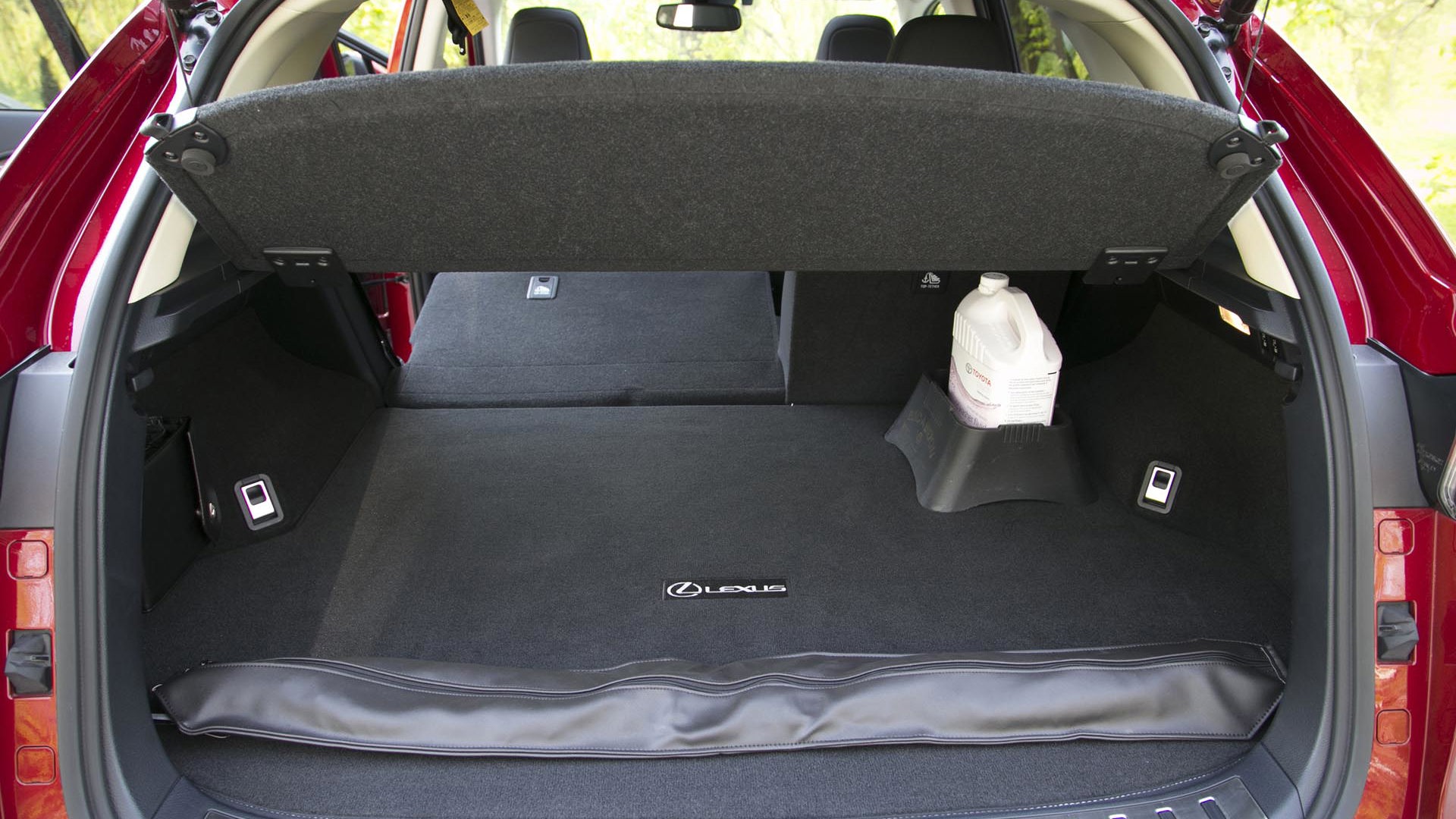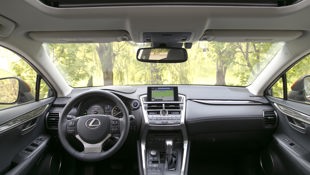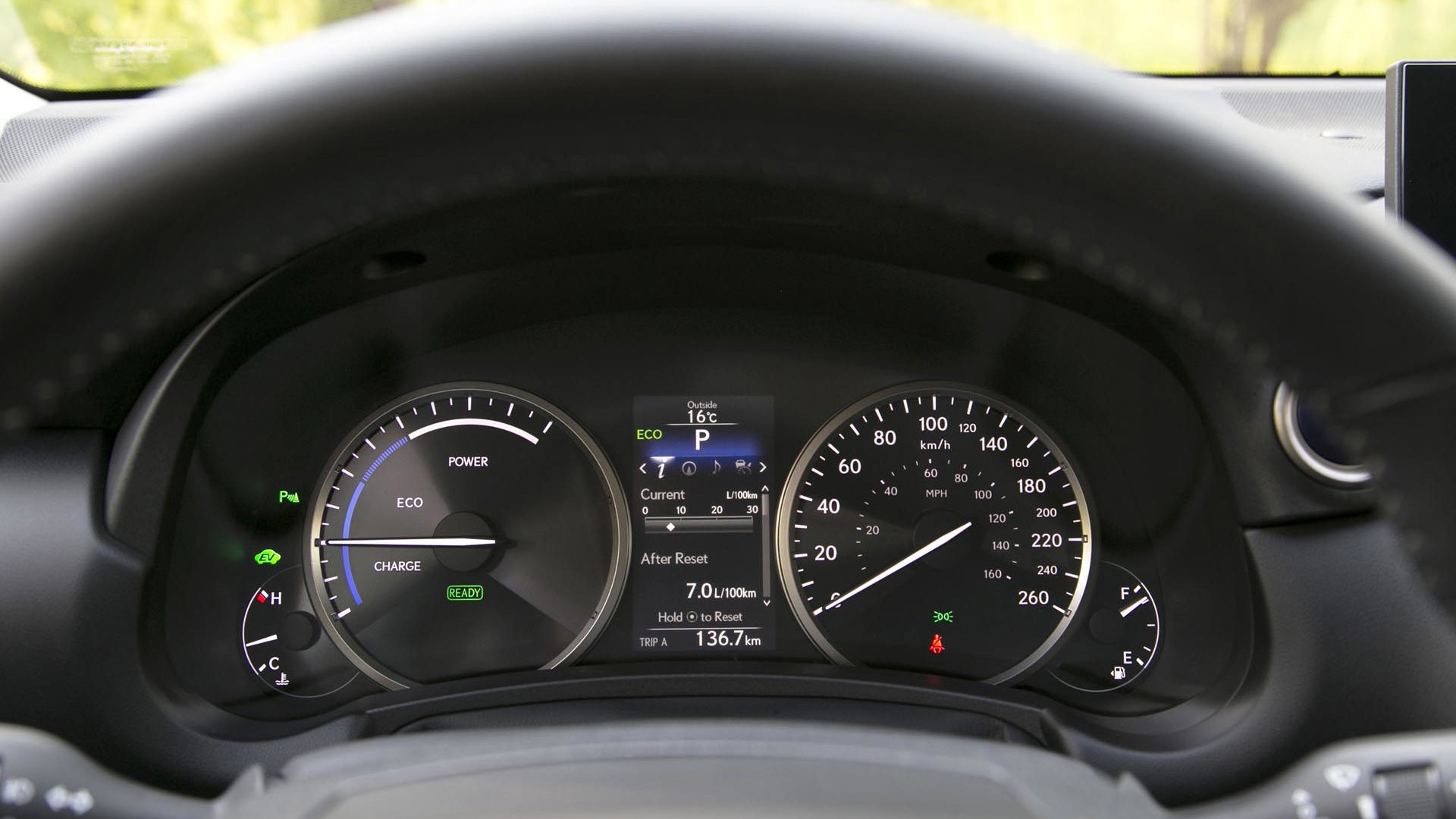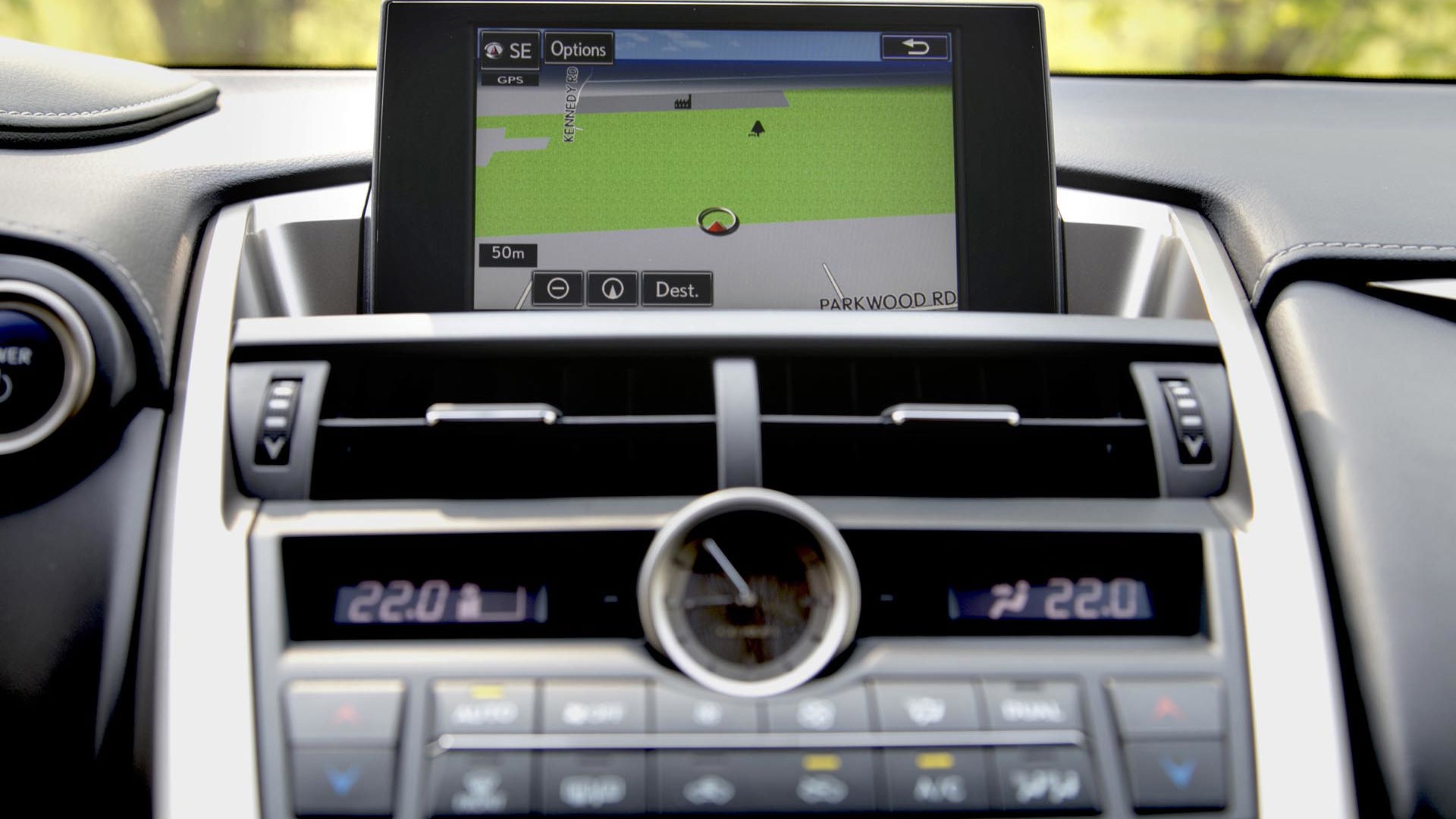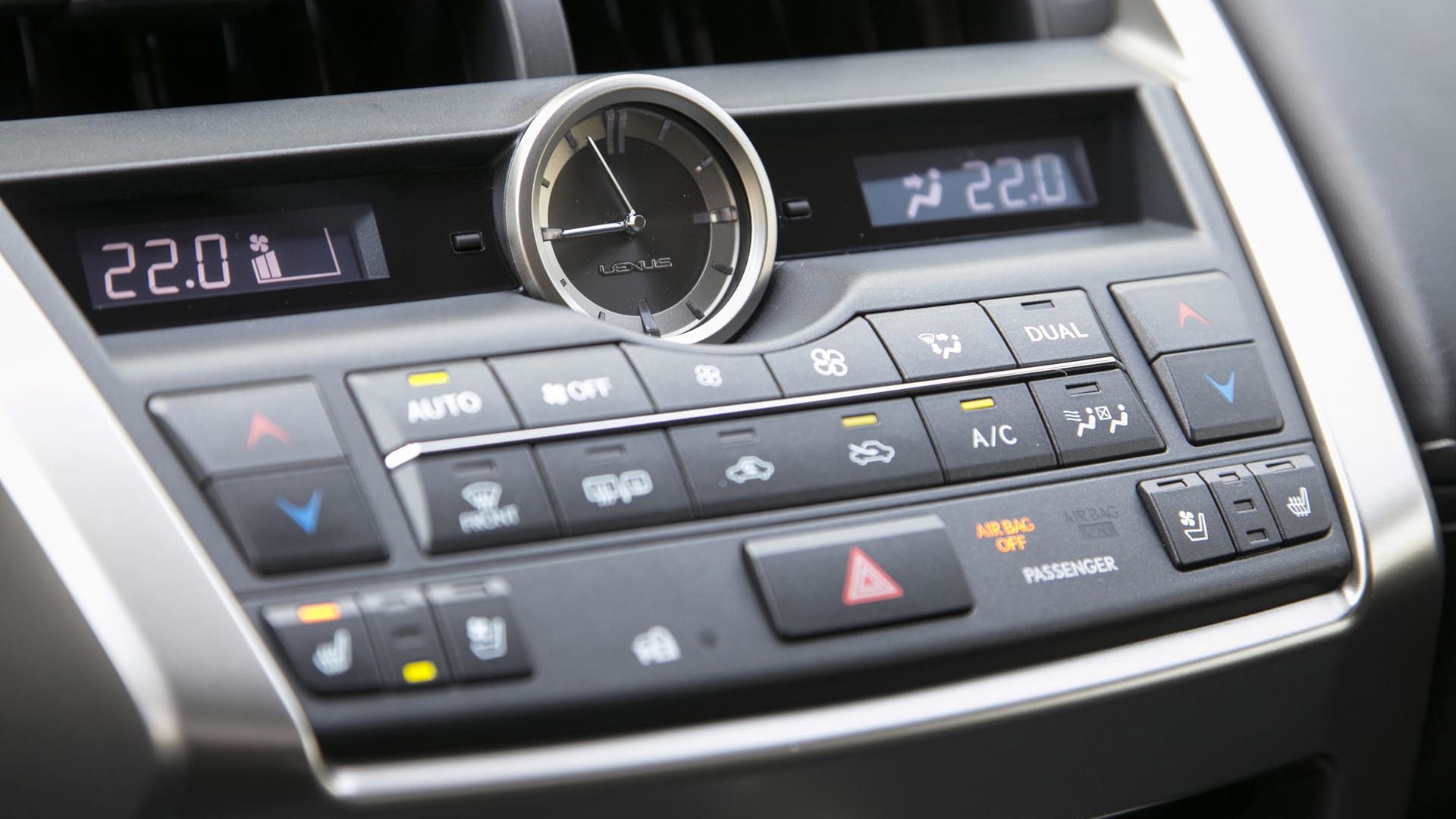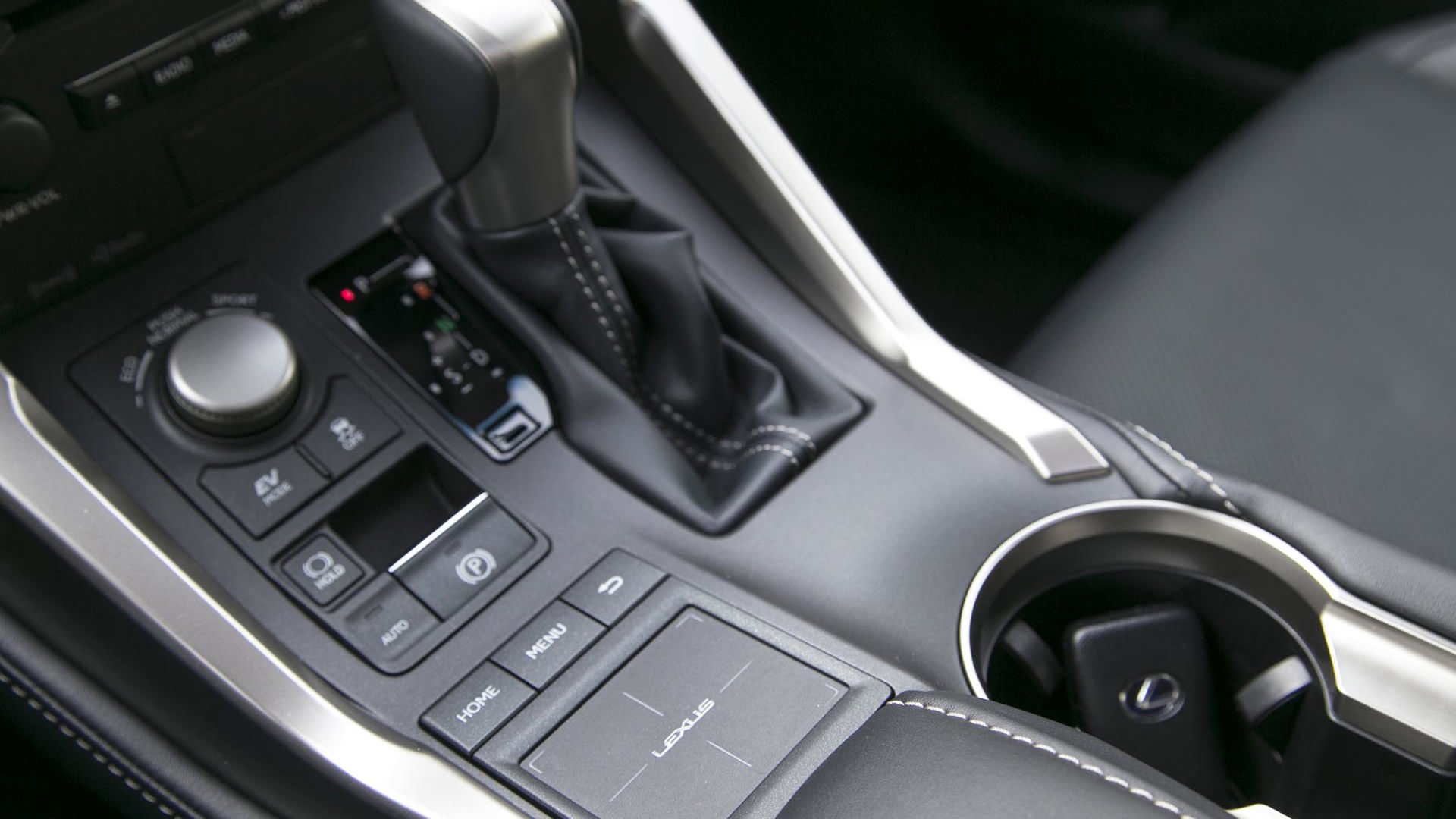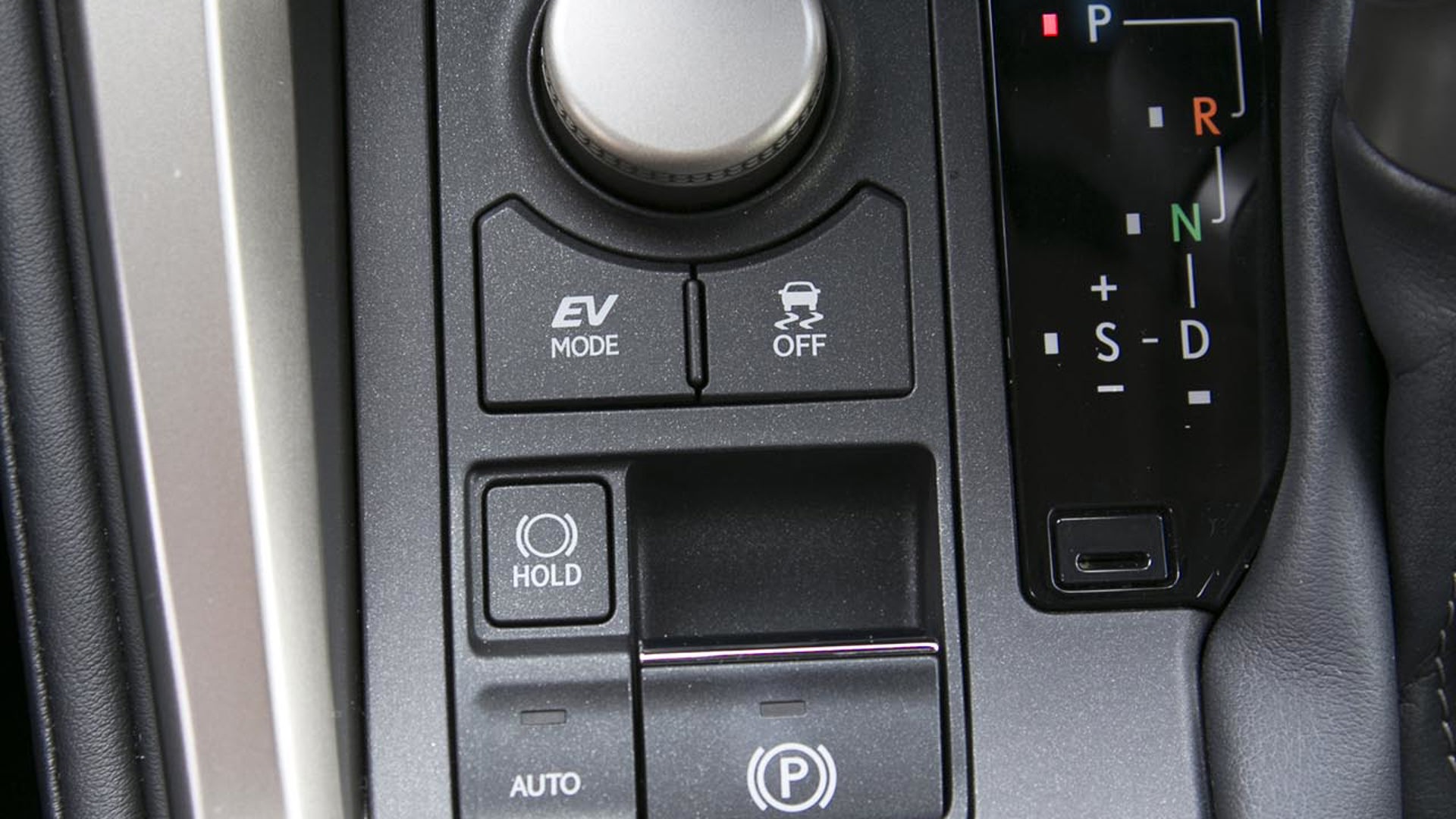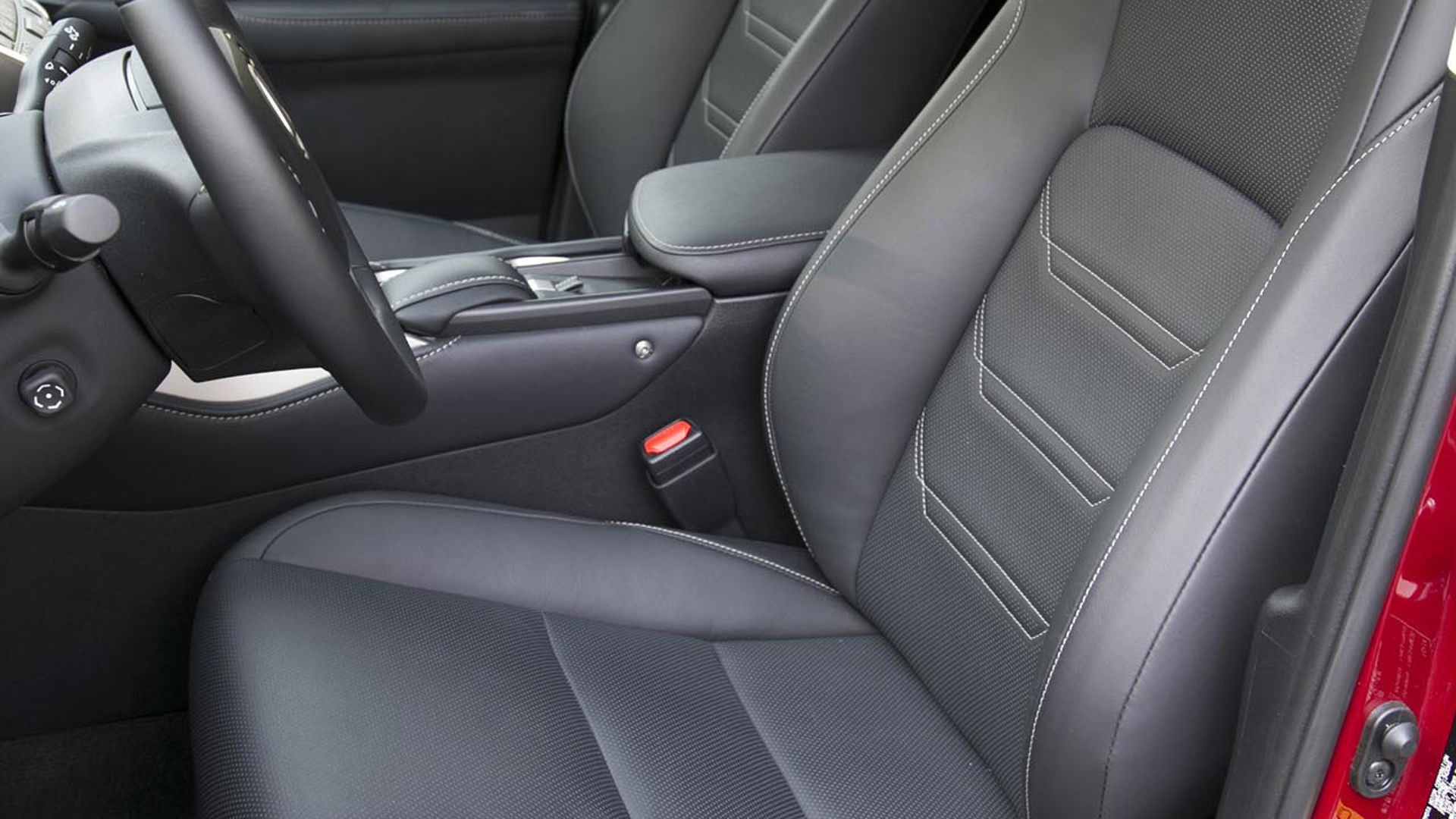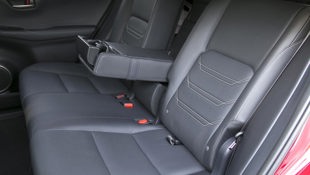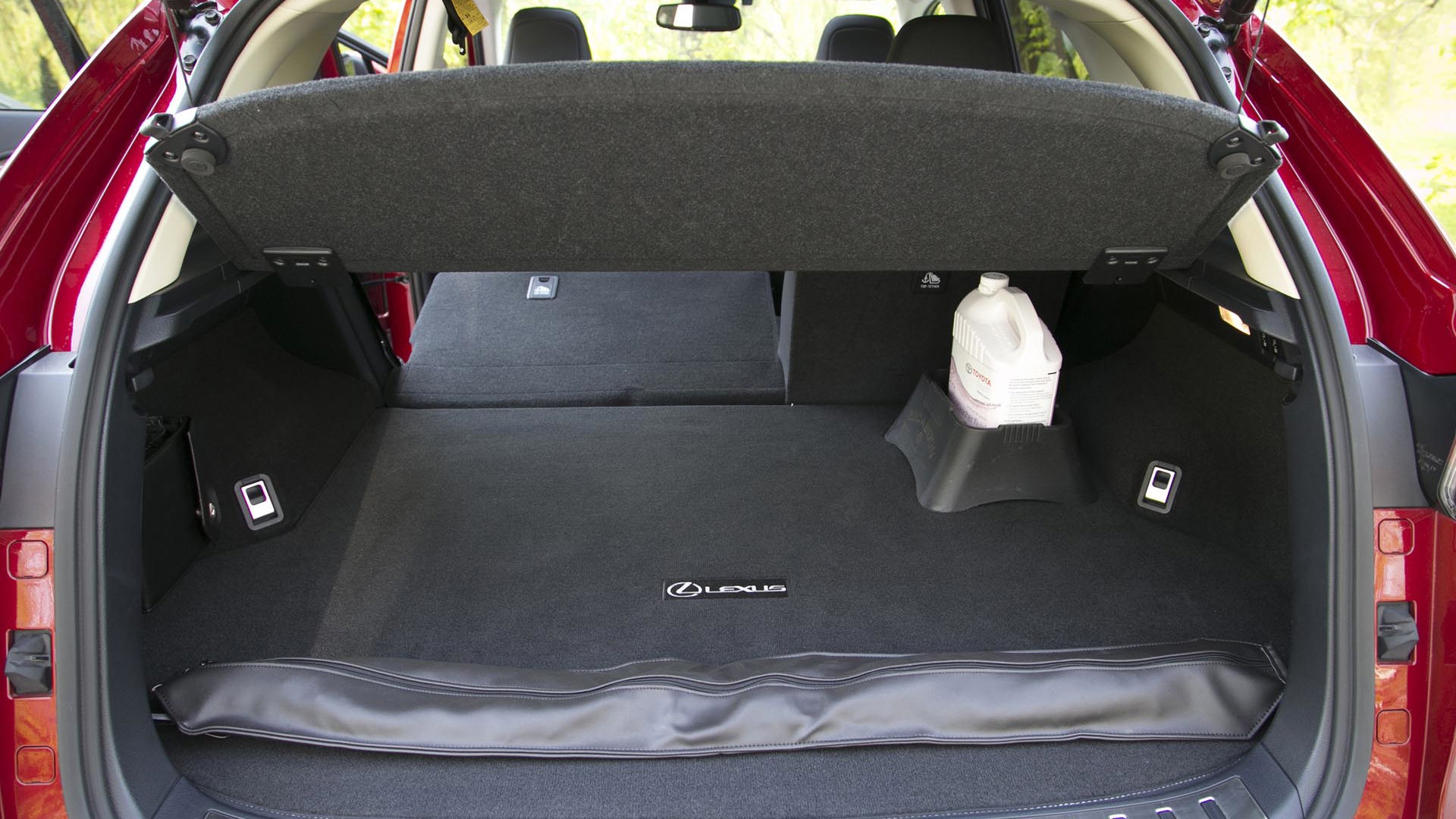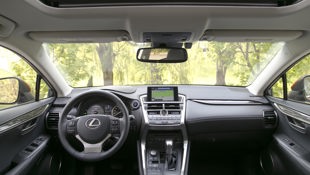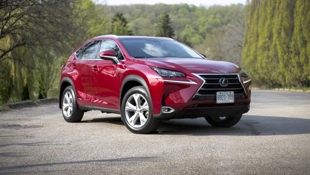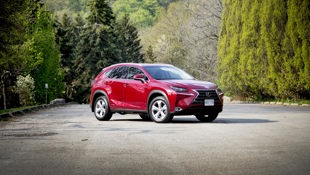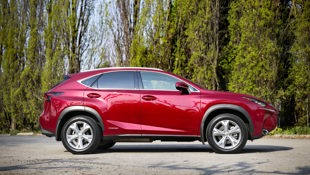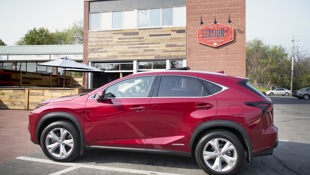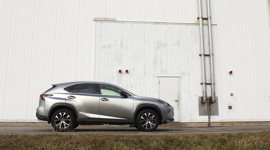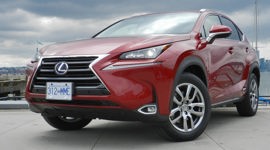 AutoTrader SCORE
AutoTrader SCORE
-
EXTERIOR STYLING8/10
-
INTERIOR8/10
-
PERFORMANCE6/10
-
COMFORT8/10
-
FUEL ECONOMY9/10
A funny thing happened on the way to the diesel pump: gasoline prices dropped, big time. Suddenly, the primary reason to suffer stinky pump handles and rattle-clatter engine notes – the promise of generous dollar savings on fuel – was largely erased. Maybe those gasoline-slurping machines aren’t so bad after all.
A funny thing happened on the way to the diesel pump: gasoline prices dropped, big time.
Meanwhile, Toyota’s North American divisions continued to ignore the brand’s diesel offerings available elsewhere in the world, instead focusing their enviro-crusading efforts on hybrid technology, including models found in the upscale Lexus brand.
Funny then, that just as diesel first looked less appealing, and gas prices crept back up, Lexus introduced the NX 200t and NX 300h compact crossover utility vehicles. The former with a turbocharged four-cylinder engine; the latter with a tried and tested 2.5L four-cylinder backed by hybrid electric power. Both turn good ol’ gasoline into thrust, and post efficiency numbers compelling enough to make the Germans rub their chins and re-think the whole hybrid thing.
Or do they?
Our subject vehicle, the Lexus NX 300h is an attention-grabbing compact luxury sport ute. Its styling may be polarizing, but it unquestionably fits within the current family lineup, resembling its rowdiest siblings – the IS and RC models – that are likely to appeal more to a younger demographic than, say an ES mid-size sedan. This is mildly amusing to those of us in the know, since it’s the ES 300h hybrid’s powertrain that resides beneath the NX 300h’s hood.
Those sporty and aggressive looks are really brought to life on our test vehicle wearing its Matador Red Mica paint that’s simply radiant in the sunlight. The finish is flawless as expected from a Lexus, and gives a great first impression of the quality to be found throughout this machine.
Inside, more youthful exuberance is evident in the dashboard layout, that again recalls closely the switchgear and styling of the IS / RC models. And that’s a good thing.
The thick-rimmed steering wheel feels great in hand, wrapped in perforated leather. Secondary controls are organized on a ledge that protrudes out of the upper dash, presenting buttons to the front seat occupants, while a pair of knobs reside beneath the upper dash cliff to control stereo volume and tuning. Ah, proper spinning knobs – a sad rarity in this day of touch screens and haptic “buttons”.
Unfortunately, not all the ergonomics are as sensible. Lexus has endeavored to move beyond its “mouse controller” set up for the infotainment systems found in earlier generations of other Lexuses, and given a new touch pad on which the driver must trace his or her finger to dispense commands.
In theory it should be simple, but out on the bumpy roads of reality it proves to be a highly tedious operation especially to navigate through large volumes of information (such as iPod tracks). The Germans still have Lexus beat with their combined touch pad + rotary knob that’s easier to manipulate on the fly. Still, the associated screen for this system is crisp and clear and presented high up on the dash close to the driver’s field of view.
The rest of the NX 300h’s interior is befitting a luxury brand with high quality materials carefully selected to prevent glare where it could be distracting, and to be soft and supple wherever it might come in contact with a passenger. Plus there are clever touches like the power operated folding rear seats that have buttons conveniently placed near the driver’s knee, at the base of the seat and in the cargo area.
All that fancy, youthful styling detracts from the practicality of the NX somewhat. Cargo capacity at 475L with the seats up is virtually the same as a sub-compact Honda Fit; and with the seats folded, is least spacious amongst the NX’s direct competitors. The Lexus’s rear seat space is also comparatively tight in this segment, especially in the measurement of headroom.
Still, for most small families and empty nesters, the compact hatchback space will be adequate for the daily errands and even a longer getaways if packing is done carefully.
It’s on longer trips that some of the diesel alternatives start to show a some advantage versus the Lexus hybrid. When pressed, the 2.5L four-cylinder protests the chore of having to motivate just shy of 2,000 kg with only 194 horsepower – and that’s combined with the electric motor’s assistance. Torque peaks at 4,400 rpm and is only 152 lb-ft, at least 100 lb-ft shy of the diesel competitors, and it’s this force of twist that is felt in day-to-day driving.
Most folks that are keen on owning a hybrid will be accepting of the soft power delivery, but they’re still unlikely to enjoy the moaning brought forth by the CVT transmission. Luckily the NX 300h is very well insulated from sound, and its stereo is decent, so it’s best to simply calm oneself and realize that you’ll get to where you’re going eventually.
And if that journey happens to be through heavy traffic or factor in a lot of urban driving, the NX 300h’s hybrid becomes truly beneficial. Rated at 7.1 L/100 km city (and 7.7 hwy), there isn’t another SUV that can match the NX 300h’s urban fuel consumption. Kept in “Eco” mode for nearly the entire week (and approximately 600 km of 2/3 urban driving), our test car delivered an average of 7.5 L/100 km. The willingness and frequency the NX 300h chooses to cruise along in pure EV mode is also impressive, becoming a bit of a challenge to the driver to maximize his or her efficiency.
The NX 300h is stiffly sprung seemingly in an attempt to live up to the sporting hype of its visage. Despite this, the damping is sufficient to smooth out the harshness from all but the nastiest of potholes. And the rigidity of both the body and suspension, coupled with the compact dimensions mean the NX is reasonably nimble to maneuver around tight urban spaces. I’ll stop short of saying it tackles the twisty country roads with exuberance though.
For me, the biggest dynamic complaint against the NX 300h is its braking. Like all hybrids, it relies on energy harnessed through the friction of braking to help replenish its battery packs. Unfortunately this always results in a grabby, non-linear and unnatural feel to braking, and that’s certainly true here. On one occasion as traffic came to an abrupt halt from highway speed, the NX 300h made a quick jerk to the right under braking, causing it to feel surprisingly unstable. No harm was done and aside from the unnatural feeling of the regenerative braking, no other issues arose with the NX 300h for the rest of its stay, but the instability in that panic-stop situation was concerning.
For those keen on hybrid ownership – or perhaps those who have owned a hybrid in the past – the idiosyncrasies found in the NX 300h will likely be forgiven. Typical of Lexus, the best successes of the NX 300h are those that draw little attention to themselves. It’s these little details that one would never notice unless they’ve suffered half-baked versions in other cars. Case in point: the proximity locking and unlocking system works exactly as it should. Approach the car, and as you grab the door handle, the locks instantly snap open. With other cars, a pause is required while the car thinks about unlocking. It may seem like a little thing, but it’s these careful details that quietly make life with the Lexus better on a daily basis.
Of course for the cost of the NX 300h, it should be masterfully designed and executed. In Canada, the all-wheel-drive NX 300h comes only one way: fully loaded. And all that technology and luxury costs a lot: just shy of $60,000, which is thousands more than the diesels from Mercedes-Benz and BMW, and even a few grand richer than the Audi Q5 hybrid. To put it another way, the NX 300h’s larger RX 450h hybrid sibling is only a couple of thousand more.
Owners of this newest Lexus offering are likely to enjoy years of efficient, well-engineered motoring. Dynamically it will never compete with the torque-rich diesel competitors, but the efficiency and quality of the NX 300h are undeniable. For those folks who value that quality and efficiency – particularly if they live in urban centres – the NX 300h may be the best choice in a segment of excellent alternatives.
| Warranty: 4 years/80,000 km; 6 years/110,000 km powertrain; 6 years/unlimited distance corrosion perforation; 4 years/unlimited distance roadside assistance Competitors: |
| Model Tested | 2015 Lexus NX 300h (AWD F-Sport Series 2) |
|---|---|
| Base Price | $59,450 |
| A/C Tax | $100 |
| Destination Fee | $1,995 |
| Price as Tested | $61,545 |
|
Optional Equipment
None
|
|
